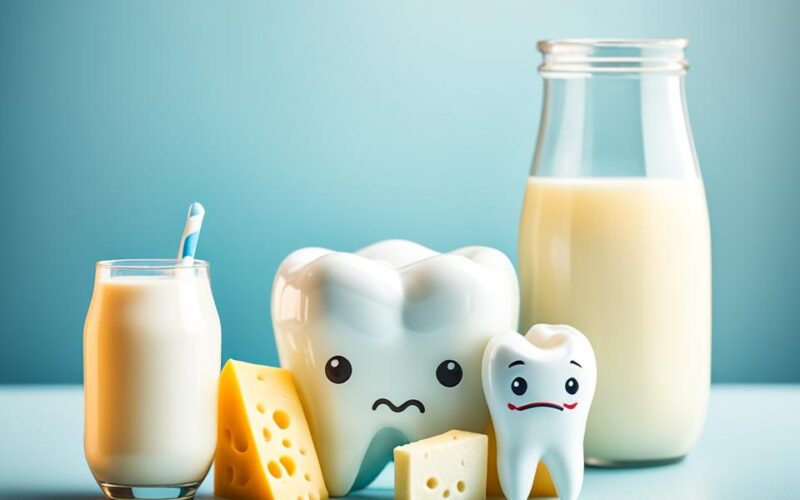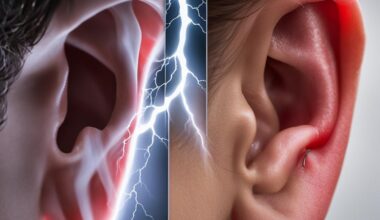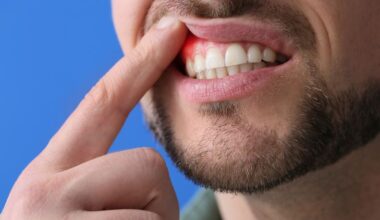Did you know that consuming dairy products after a tooth extraction can have negative effects on the healing process? It may come as a surprise, considering dairy’s reputation for providing essential nutrients and promoting overall health. However, when it comes to dental recovery, dairy should be avoided due to its potential impact on the extraction site and surrounding tissues.
Dairy products can delay healing, increase swelling, cause infection, contribute to dry socket, and even interfere with taste buds. These complications can prolong recovery and lead to discomfort. To ensure optimal healing and minimize post-extraction complications, it is crucial to follow the guidelines provided by your dentist or oral surgeon, which may include avoiding dairy products.
The Tooth Extraction Procedure and Recovery
The tooth extraction procedure is a common dental surgery performed to remove a damaged or decayed tooth from its socket. This procedure is typically performed by a dentist or an oral surgeon. During the tooth extraction procedure, several steps are involved to ensure the safe and effective removal of the tooth.
- Anesthesia: To minimize pain and discomfort during the procedure, the dentist administers local anesthesia to numb the area around the tooth.
- Tooth Loosening: The dentist may use special instruments, such as elevators and forceps, to loosen the tooth from its socket.
- Tooth Removal: Once the tooth is sufficiently loosened, the dentist carefully removes it from the socket. In some cases, the tooth may need to be sectioned into smaller pieces for easier removal.
- Socket Cleaning: After the tooth is extracted, the socket (the empty space left in the gum) is thoroughly cleaned to remove any debris or infection.
- Stitches: Depending on the complexity of the extraction, the dentist may place stitches to aid in the healing process and promote proper gum closure.
Following the tooth extraction procedure, a proper recovery period is crucial to ensure optimal healing and minimize complications. The tooth extraction recovery timeline may vary from person to person, but it generally takes about one to two weeks for the extraction site to fully heal.
During the recovery period, it is important to follow the dentist’s instructions and practice proper aftercare. This includes:
- Avoiding strenuous activities to prevent excessive bleeding or dislodging the blood clot.
- Taking prescribed medications, such as pain relievers or antibiotics, as directed for pain management and infection prevention.
- Applying ice packs to the external face area to reduce swelling and discomfort.
- Gently rinsing the mouth with saltwater solutions to keep the extraction site clean.
- Adhering to a soft food diet to avoid irritating the extraction site.
Precautions for a Smooth Recovery
To ensure a smooth recovery and minimize complications, it is essential to avoid certain activities and habits during the healing period. These precautions include:
“Avoid smoking or using tobacco products, as they can delay healing and increase the risk of infection. Also, refrain from using a straw or spitting forcefully, as these actions can dislodge the blood clot and lead to a painful condition called dry socket.”
Following the tooth extraction procedure and practicing proper aftercare can help promote optimal healing, reduce the risk of complications, and restore oral health.
| Activity | Precautions |
|---|---|
| Smoking or tobacco use | Avoid completely as it delays healing and increases the risk of infection. |
| Using a straw | Avoid using straws as it can dislodge the blood clot and lead to dry socket. |
| Forceful spitting or rinsing | Gently rinse the mouth with saltwater without forcefully spitting to avoid disturbing the extraction site. |
Reasons to Avoid Dairy After Tooth Extraction
After tooth extraction, it is important to avoid dairy products for several reasons. Dairy can hinder the healing process, increase swelling, and raise the risk of infection. Additionally, dairy products have the potential to coat the soft tissues of the mouth and disrupt the function of taste buds. These factors make it essential to steer clear of dairy after dental surgery to ensure optimal healing and minimize complications.
Dairy products contain certain components that can interfere with the clotting process and cause inflammation at the site of extraction. This delay in healing can prolong the recovery period and increase the discomfort experienced by the patient.
Moreover, consuming dairy after tooth extraction can contribute to swelling. The properties of dairy products can exacerbate the inflammatory response, leading to more pronounced swelling in the area around the extraction site. Minimizing swelling is crucial for a smooth recovery and to prevent further complications.
The risk of infection is another concern when it comes to consuming dairy after tooth extraction. Dairy products can harbor bacteria or introduce new bacteria into the mouth, which may enter the extraction site and trigger an infection. Since infections can significantly impede the healing process and cause additional pain, it is advisable to avoid dairy to reduce the likelihood of such complications.
Furthermore, dairy products have the tendency to coat the soft tissues of the mouth, including the tongue and the lining of the cheeks. This coating can interfere with the function of taste buds, impairing the ability to fully taste and enjoy food. By abstaining from dairy, patients can ensure that their taste buds remain unaffected, enhancing their overall post-surgery experience.
Overall, the reasons to avoid dairy after tooth extraction are multifaceted. From delaying healing and exacerbating swelling to increasing the risk of infection and interfering with taste buds, dairy products can have detrimental effects on the recovery process. It is essential to prioritize optimal healing and minimize complications by adhering to the recommended dietary restrictions.
Foods to Avoid After Tooth Extraction
After a tooth extraction, it is important to follow post-extraction dietary restrictions to promote proper healing and minimize complications. While dairy products are known to be off-limits during this time, there are other foods that should also be avoided.
First and foremost, spicy or acidic foods should be avoided as they can irritate the extraction site and slow down the healing process. These foods can increase discomfort and delay the formation of a blood clot, which is essential for proper healing. It is best to give your mouth time to heal before reintroducing these types of foods into your diet.
Hard or crunchy foods should also be avoided. These foods can put unnecessary pressure on the extraction site, causing irritation and potential disruption of the blood clot. Foods like nuts, chips, and hard candies should be avoided to prevent any complications during the healing process.
Alcohol and carbonated beverages should be avoided as well. These beverages can slow down the healing process and increase the risk of infection. It is crucial to maintain a clean and infection-free environment in the mouth during the recovery period, and avoiding these beverages can help in achieving that.
During the recovery period, it is also advisable to avoid using straws. The suction created by using a straw can dislodge the blood clot and delay the healing process. It is best to drink fluids directly from a cup or glass to minimize any risks.
Below is a table summarizing the foods to avoid after tooth extraction to ensure optimal healing.
| Foods to Avoid |
|---|
| Spicy or acidic foods |
| Hard or crunchy foods |
| Alcohol and carbonated beverages |
| Using straws |
It is important to remember that these dietary restrictions are temporary and are crucial for a smooth recovery after a tooth extraction. As your mouth heals, you can gradually reintroduce these foods back into your diet under the guidance of your dentist or oral surgeon.
Alternative Foods for Proper Healing
After tooth extraction, it’s important to avoid dairy products for optimal healing. However, there are plenty of alternative foods that can promote proper healing and ensure you’re getting the necessary nutrients. Incorporating soft foods into your diet can provide gentle nourishment while minimizing discomfort. Here are some soft food options to consider:
1. Soft Fruits:
Enjoy the natural sweetness and essential nutrients of soft fruits like bananas and peaches. These fruits are easy to digest and gentle on your teeth and gums.
2. Cooked Vegetables:
Cooked vegetables are not only gentle on your mouth but also offer a host of important vitamins and minerals. Incorporate steamed or boiled vegetables into your meals for a nutritious boost.
3. Protein-Rich Options:
Eggs and tofu are excellent sources of low-fat, high-protein nutrition. These foods are rich in nutrients that aid in healing and provide the necessary energy for recovery.
4. Nourishing Soups and Broths:
Soups and broths are not only comforting but also provide essential nutrients and hydration. Opt for homemade vegetable or chicken broth to support your healing process.
5. Soft Grains:
Rice and pasta are soft grain options that can be easily incorporated into your post-extraction diet. These foods provide carbohydrates for energy and can be paired with soft vegetables and proteins for a complete meal.
6. Dairy-Free Smoothies:
If you’re craving a refreshing and nutritious treat, try dairy-free smoothies. Blend soft fruits, vegetables, and plant-based milk for a creamy and delicious beverage.
And for a soothing indulgence, you can enjoy a serving of ice cream or sorbet, which can help alleviate discomfort and provide a temporary relief.
By incorporating these alternative foods into your post-tooth extraction diet, you can support proper healing and optimize your recovery process. Remember to consult with your dentist or oral surgeon for personalized dietary guidelines that suit your specific needs.
Conclusion
Following a proper post-tooth extraction diet is crucial for optimal healing and recovery. While dairy products are generally beneficial for overall health, it is important to avoid them after dental surgery. The potential negative impact of dairy on healing includes delayed recovery, increased swelling, infection risk, dry socket, and interference with taste buds. By adhering to dietary restrictions, individuals can ensure a smooth recovery and minimize complications.
Fortunately, there are plenty of alternative foods that can support healing after tooth extraction. Soft fruits like bananas and peaches provide essential nutrients and are easily digestible. Cooked vegetables offer important vitamins and minerals while being gentle on the teeth and gums. Protein-rich foods such as eggs and tofu are low in fat, aiding in the healing process. Soups, broths, rice, pasta, and dairy-free smoothies can also be incorporated into the post-extraction diet.
It is advisable to consult with a dentist or oral surgeon for personalized post-extraction dietary guidelines. Every individual’s recovery may vary, and a professional can provide specific recommendations based on the patient’s condition and overall health. By following the recommended post-tooth extraction diet, individuals can promote optimal healing, minimize discomfort, and ensure a successful recovery from dental surgery.
FAQ
Why should dairy products be avoided after tooth extraction?
Dairy products should be avoided after tooth extraction because they can delay healing, increase swelling, cause infection, contribute to dry socket, and interfere with taste buds.
What is the tooth extraction procedure and recovery like?
The tooth extraction procedure involves the removal of a damaged tooth from its socket. After the extraction, the socket is cleaned and disinfected, and stitches may be placed. Recovery involves proper aftercare to prevent infection and promote healing.
What are the reasons to avoid dairy after tooth extraction?
Dairy can delay healing by interfering with clotting and causing inflammation at the extraction site. It can also increase swelling and the risk of infection. Dairy products can also coat the soft tissues of the mouth and interfere with the function of taste buds.
What foods should be avoided after tooth extraction?
In addition to dairy products, spicy or acidic foods, hard or crunchy foods, alcohol, and carbonated beverages should be avoided to prevent irritation, disruption of the blood clot, and slow down healing.
What are some alternative foods for proper healing after tooth extraction?
Soft fruits like bananas and peaches, cooked vegetables, eggs, tofu, soups and broths, rice, pasta, dairy-free smoothies, and ice cream or sorbet can be incorporated into the post-extraction diet for their soothing properties and essential nutrients.
How important is it to follow a proper post-tooth extraction diet?
Following a proper post-tooth extraction diet is crucial for optimal healing and recovery. It helps ensure a smooth recovery and minimizes complications. It is advisable to consult with a dentist or oral surgeon for personalized post-extraction dietary guidelines.









